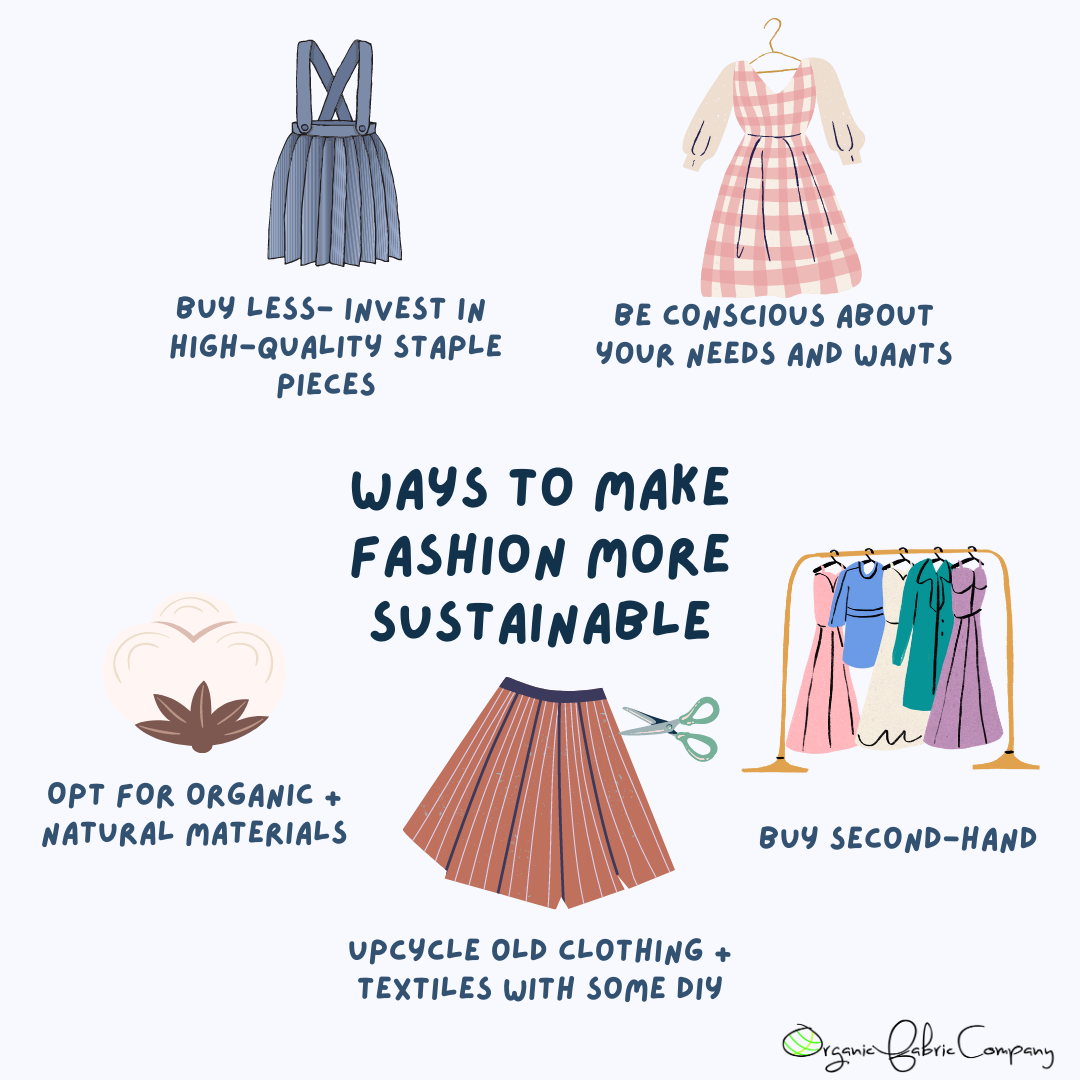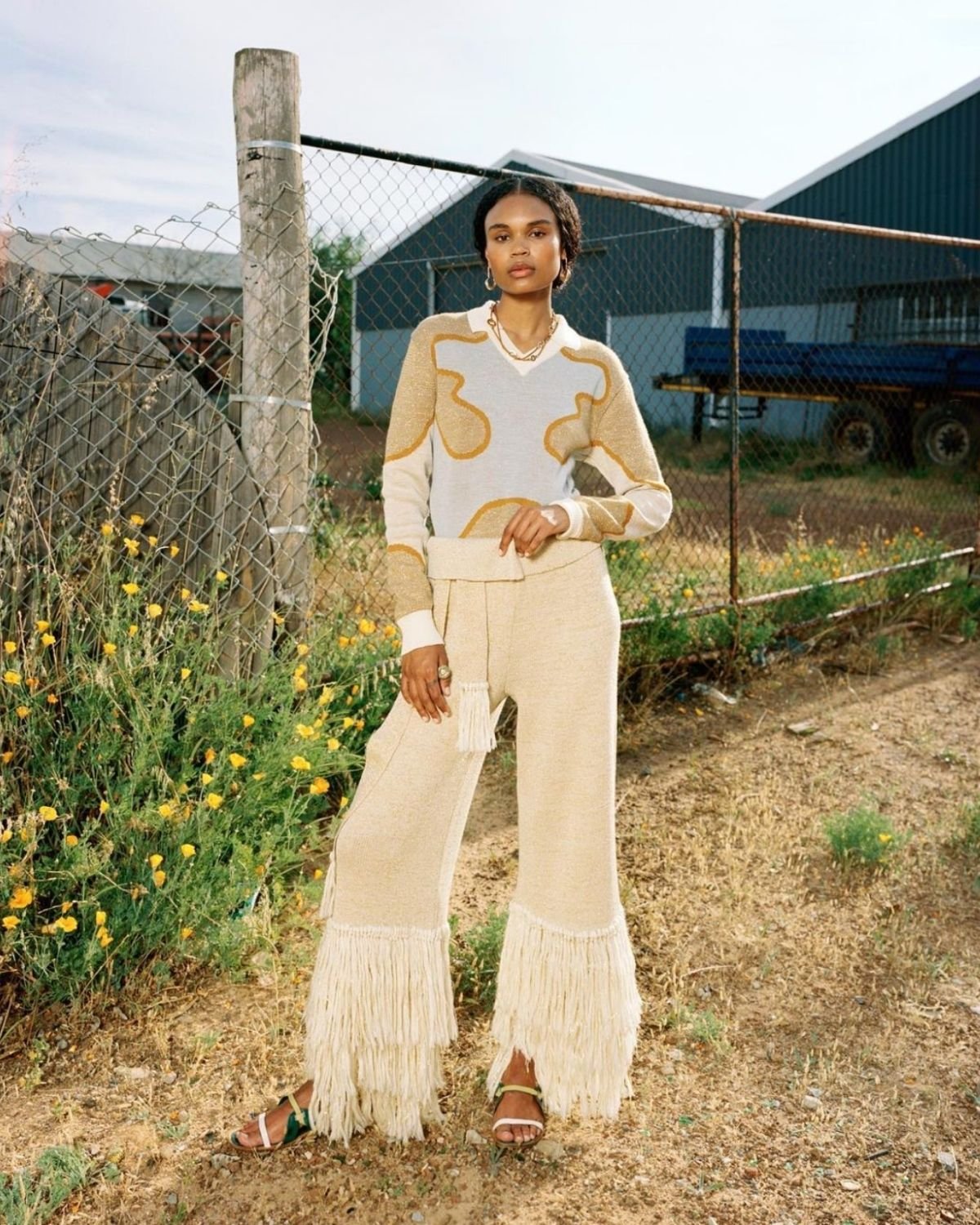Keep Ahead of the Contour by Checking Out Innovative Fashion Trends
In an industry as dynamic as style, remaining in advance includes greater than simply following existing fads-- it requires an exploration of development. Smart textiles, for example, are transforming garments into functional work of arts, while 3D printing is changing style processes with its customizable, waste-reducing capacities. As sustainability comes to be a foundation, advancements like green products and circular style methods are improving ecological responsibility - Cape Town Sustainable Fashion. In addition, the convergence of modern technology and fashion declares a brand-new era of customer engagement. Just how, then, can these emerging fads redefine the future of style, and what effects do they hold for brands seeking to grow in this progressing landscape?

Welcoming Smart Textiles
In recent times, the garment industry has actually experienced a transformative change with the assimilation of smart textiles, a sophisticated innovation that blends technology with material. This evolution represents not only a combination of aesthetics and functionality however likewise a considerable jump in the direction of sustainability and customization in style. Smart fabrics, likewise recognized as e-textiles, installed advanced electronics such as sensing units and conductive threads within the material, allowing garments to connect with the environment or the user.
These fabrics are made to check physical parameters, such as heart rate or body temperature, providing real-time health analytics. Past wellness applications, wise textiles are also being utilized for adaptive clothing, which can transform shade or pattern in action to environmental stimuli, hence supplying a vibrant fashion experience.
Moreover, the development of energy-harvesting fabrics that produce power from movement or sunshine is leading the method for self-sufficient wearable technology. This technology is interesting ecologically conscious customers and designers aiming to minimize the environmental footprint of style. As r & d in this area advancement, smart fabrics are expected to come to be progressively prevalent, improving the landscape of contemporary style with their multifunctional abilities.
The Rise of 3D Printing
Changing the manufacturing landscape, 3D printing has actually emerged as a game-changer in the apparel industry. This cutting-edge modern technology has made it possible for designers to press the boundaries of creative thinking, creating detailed and personalized garments that were formerly inconceivable. By leveraging electronic design and additive production, 3D printing helps with the production of complex geometries and patterns, enabling developers to try out brand-new textures and structures.
A significant advantage of 3D printing in style is its capability to generate on-demand, reducing waste and lowering stock demands. This effectiveness not just optimizes manufacturing processes yet also enables fast prototyping, making it possible for designers to bring their visions to life in a much shorter duration. Furthermore, 3D printing supports personalization somewhat unrivaled by standard approaches, offering tailored fits and one-of-a-kind styles tailored to private customer choices.
The increase of 3D printing has actually likewise equalized style, making it accessible to emerging designers who can now make premium items without considerable financial investment in standard production infrastructure. As innovation remains to breakthrough, the fashion business is poised to harness the complete potential of 3D printing, exploring brand-new products and strategies that will definitely redefine just how style is developed and created.
Sustainable Fashion Innovations
As the garment industry comes to grips with the pushing requirement for environmental responsibility, sustainable style advancements have actually emerged at the center of transformative adjustment. The growing awareness of ecological impact has actually fueled a shift in the direction of more eco-conscious practices and products. Developers and brands are now focusing on sustainability, including methods that reduce waste and reduce carbon footprints.
One significant development is the increase of round fashion, which highlights recycling and upcycling to extend the lifecycle of garments. This method not just decreases waste but also urges consumers to embrace a much more mindful strategy to apparel intake. Additionally, making use of sustainable products, such as organic cotton, hemp, and recycled polyester, has actually obtained traction. These products need much less water and energy throughout production, significantly decreasing ecological impact.
Another development lies in the adoption of ingenious dyeing strategies that utilize waterless processes or natural dyes, therefore reducing the huge quantities of water and chemicals traditionally made use of in fabric dyeing. Additionally, improvements in biotechnology have actually led to the development of lab-grown natural leather and textiles, offering ecologically pleasant and cruelty-free choices to standard materials. Through these pioneering initiatives, the style sector is making purposeful strides in the direction of a more sustainable future.

Tech-Integrated Clothing
Tech-integrated read this apparel stands for a cutting-edge blend of fashion and technology, reshaping just how people communicate with their clothing. This cutting-edge domain is noted by the incorporation of wise textiles and ingrained digital components, boosting both performance and aesthetic charm. From physical fitness trackers embedded in sports apparel to heated coats managed via smart device applications, tech-integrated apparel supplies customers extraordinary benefit and versatility.
Pioneering brands are driving this pattern, concentrating on producing garments that react to environmental stimulations or user commands. For example, some garments can alter shade or pattern in reaction to temperature shifts, while others include biometric sensing units to monitor health metrics like heart price or stress and anxiety degrees. The smooth combination of innovation into textiles also includes ecological sustainability, with initiatives to create self-cleaning textiles or garments that get used to climate condition, therefore reducing the need for numerous layers.
In addition, the development of wearable innovation is not just limited to clothes yet expands to devices like watches and eyewear, more widening the range of tech-integrated style. As the industry remains to innovate, the potential for modification and personalization in apparel expands, using consumers distinct, tech-enhanced fashion experiences that provide to their individual demands and preferences.
Future of Virtual Fashion
Recently, the future of virtual style has arised as a transformative pressure within the industry, leveraging innovations in digital technology to redefine exactly how fashion is produced, experienced, and consumed. By incorporating augmented fact (AR), online fact (VIRTUAL REALITY), and 3D design devices, designers can currently craft immersive and interactive experiences that transcend conventional style limits. Online fashion allows for the creation of garments that exist only in digital settings, providing countless possibilities for technology without the restrictions of physical manufacturing.
This digital shift not just presents chances for creative expression however additionally addresses sustainability issues intrinsic in standard style practices. Cape Town Sustainable Fashion. By getting rid of the demand for physical resources, virtual style decreases waste and reduces carbon footprints. Additionally, the surge of digital fashion lines up with the raising consumer demand for distinct and tailored experiences, as online garments can be tailored and tailored to individual preferences with simplicity

Conclusion
The style industry's future lies in the combination of cutting-edge technologies and sustainable techniques. Virtual fashion is positioned to redefine customer communications.
In you can look here recent years, the Visit This Link fashion market has actually observed a transformative shift with the combination of wise fabrics, an advanced advancement that mixes modern technology with textile.As the style sector grapples with the pushing demand for environmental responsibility, sustainable fashion advancements have actually arised at the center of transformative adjustment.In current years, the future of digital style has actually arised as a transformative pressure within the sector, leveraging advancements in digital technology to redefine how fashion is produced, experienced, and taken in. The increase of online fashion aligns with the enhancing consumer demand for tailored and unique experiences, as virtual garments can be personalized and tailored to specific choices with convenience.
The style market's future lies in the combination of ingenious technologies and lasting techniques.